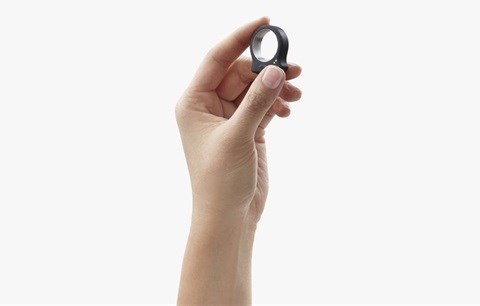From New York to London and Berlin, fashion designers and brands gave a preview of what innovations await mainstream consumers in the future: adidas launched its "footwear selfies" at Berlin Fashion Week, reports BrandChannel.com where a customised app enables brand fans to decorate adidas ZX Flux trainers with personal photos or graphics.
Then LikeToKnow from RewardStyle enabled some collections shoppable via Instagram, instantaneously, as the models strutted their stuff.
While the widespread integration of wearables into consumer lifestyles is still fairly far off, wearables at work, however, is a real trend that already is transforming certain workspaces and operations.

Fast Company magazine in the United States recently had a 'wearables week' in which it produced various reports around the wearables category. The most obvious tool that comes to mind for both consumers in general and people at work are the various fitness devices such as step-tracking armbands and smartwatches which track training goals.
BP America rolled out step-tracking devices for employees last year and saw immediate benefits to employees and lower health insurance premiums. However, there are other industries that are also capitalising on the new tech and Fast Company has tracked the first industries that will introduce wearables at work:
1. Warehousing: head mounted display based applications from SAP to assist employees working in warehouses or in the field with directions, 3-D models to assist in repairs and direct communication with colleagues.
2. Service industry: Google Glass has been trialled by Virgin Atlantic for its premium customer service and has seen positive results. Google Glass provided staff with data on their customers' itineraries, including flight delays, upgrade options, weather forecasts, and so on, with minimal intrusion.
3. Human Resources/Internal Communications: the University of London Institute of Management Studies, sees wearables playing a critical role in the workplace of the future, in tracking and increasing employee productivity, enhancing fitness, improving communication, and providing vital business information. Privacy concerns and limited data capability are currently limiting the use of wearables in this regard, but early adopters are seeing positive results - like BP in the improved health of its employees.
4. Business-focussed applications: like Alpine Metrics and Salesforce "free Intelligence Forecasting application" that alerts salespeople of trends and vital info to enable them to make informed decisions, Fast Company reports.

"In our early-stage research we see wearables playing a really critical role in the workplaces of the future, and our feeling is that organisations haven't really adapted to the possibilities that they've presented," Chris Brauer of London University told Fast Company.
Google Glass, Fitbit and the Apple Watch are the most high profile consumer wearables everyone out there is talking about, but there are other key applications, as Fast Company reports in its wearables report on the gadgets available:
• Waistline: The Triposo Travel Belt is still a theory as it failed to get crowdfunding, but basically it was designed to give directions to travellers by 'buzzing' them directions.
• Necklace: Samsung already has Gear Circle - a "neckwearable smartwatch-type device" and Artefact has developed Purple, a Bluetooth-enabled locket which displays your photos.
• Shoe embeds: Ducere's Lechal is the world's first interactive haptic feedback footwear company, making shoes and insoles with vibratory feedback, enabling consumers to navigate, stay fit and interact. The shoes even respond to voice commands!
• Rings: The Nod smartring is Bluetooth enabled which allows wearers to communicate with other gadgets, play games, control smart TV interfaces or enter text on a smartwatch with finger movements. Incredible.Just the benefits available in the workplace and in health applications for the disabled are astounding. Personally, I'm looking forward to the future!

TRENDAFRiCA is a trend watching portal on consumer insight, research and trends from South Africa and further afield on the continent of Africa. It includes DAiLY trends headlines from around the world, influential Trendspotter columnists and in-depth reports on industry segments. Louise Marsland is the founder and editor.
Go to: www.trendafrica.co.za